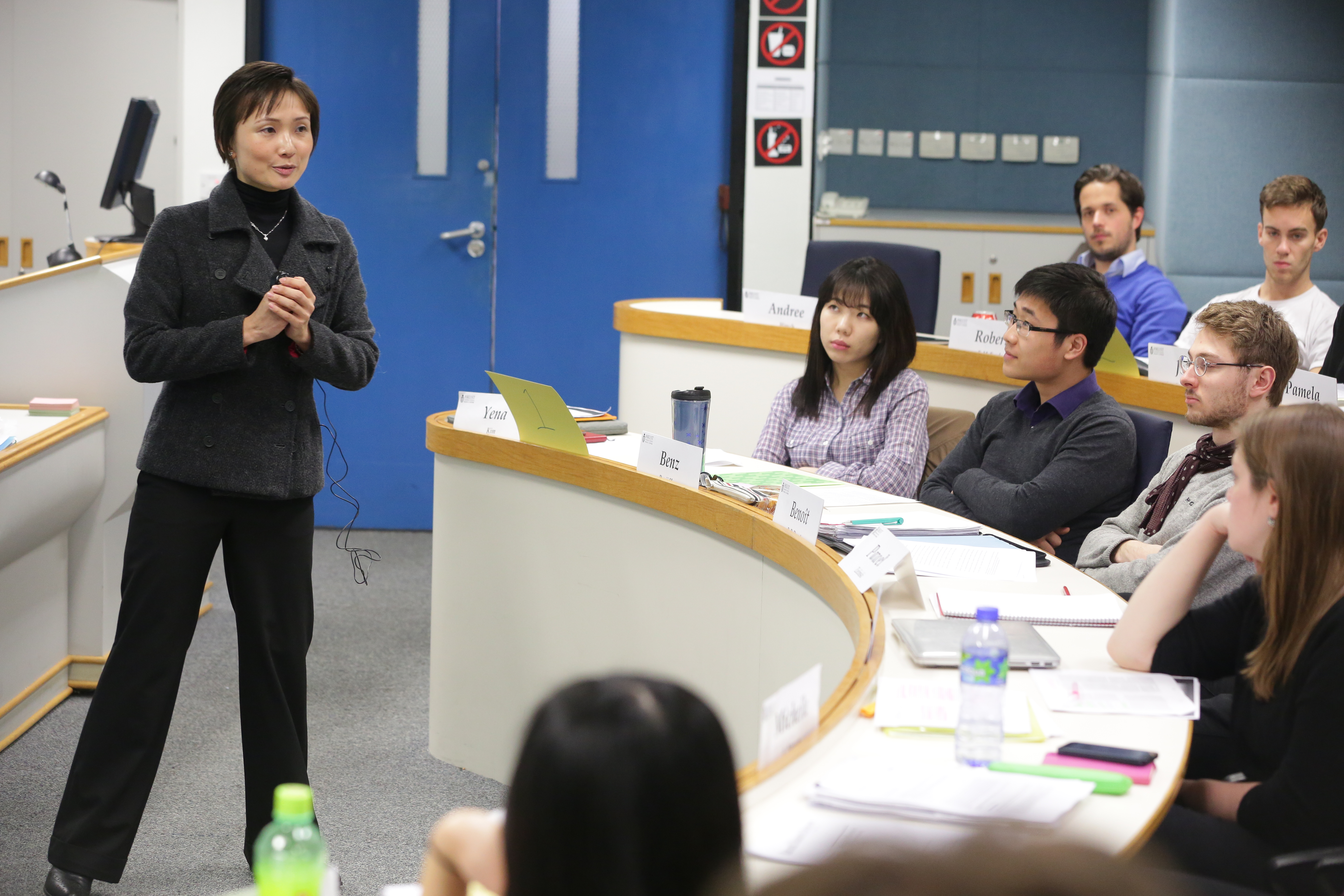This spring, Professor Melody Chao, an Assistant Professor of the Department of Management at the HKUST Business School, is busy with not only research, teaching and services, but also preparing for swimming competitions which will be held in June. “Depending on your judgment standards, someone will always be faster; someone will always be better. Taking part in the competitions is not about outperforming the others. I see it as an opportunity to learn how to improve every stroke and kick from the others,” she said.
To Professor Chao, learning is a lifelong process. This applies to swimming, and also to research and teaching. The key is to find your passion and go for it.

Her determination and persistence have led to medals in various competitive swimming games and also scholarly accolades early in her academic career.
Last year, Professor Chao received two remarkable research awards: the Early Career Award from the International Academy of Intercultural Research, and the Michael Harris Bond Award for Early Research Contributions from the Asian Association of Social Psychology. The former award is an international award that recognizes individuals who have made substantial contributions to the field of intercultural relations early in their careers, whereas the latter award recognizes individuals who make significant contributions to Asian social psychology.
Finding her passion
Being born and raised in Macau, Professor Chao developed a keen interest in psychology when she went abroad to begin her undergraduate education in the US, where she started to realize that people’s thinking and behavior can be influenced by their social and cultural environment.
After completing a bachelor’s degree in psychology at the University of California, Berkeley, Professor Chao joined the Asian American Recovery Services, Inc., a non-profit community-based organization in San Francisco that has been dedicated to decrease the incidence and impact of substance abuse by providing prevention, intervention, and treatment services to the communities. Having served as a senior research assistant, a database specialist, and an agency statistics coordinator, she met and worked with people from very diverse backgrounds.
These experiences fostered her curiosity in understanding intergroup relations and ignited her interest in learning about the dynamics of psychological processes in intercultural contexts. She then decided to pursue her PhD in social psychology at the University of Illinois, Urbana-Champaign.
In 2009, Professor Chao came to Hong Kong and started her academic career at HKUST, where she continued her research in organization behaviors, multicultural psychology, and intergroup relations.
She is grateful to have a supportive working environment. “I am thankful for having wonderful mentors and peers who provide valuable support and advice along the way, especially when there are challenges and setbacks,” she said. “I hope that I would be able to support the others, just like how the others have supported me,” she added. Besides working with her colleagues and graduate students, she has also taken an active role in supervising undergraduate research through the Undergraduate Research Opportunities Program, which aims to provide undergraduate students with an opportunity to explore their interest in research.
Learning as a lifelong process
Professor Chao finds herself learning something new every day through research and teaching. She would get inspired through interacting with colleagues as well as with students. Besides teaching undergraduate and Master’s degree students, she has also been involved in executive education. She enjoys engaging students in the learning process. “If you just listen, you will be amazed by how much each person in the room has to offer,” said Professor Chao.
Professor Chao is humble about her achievements. When being asked about how she feels about these achievements, she said, “I will continue my work as usual. It’s important to be yourself and be true to yourself.”
She added, “I am inspired by competitive swimmers who are in their 60s, 70s, and even 80s and beyond, who are passionate about what they do and keep learning and improving every stroke and kick.” Learning never ends.
Although Professor Chao already has years of experiences in the field, she sometimes still gets mistaken as an undergraduate student because of her youthful appearance. She said that she hopes to continue to swim even after the age of 60s and beyond.



